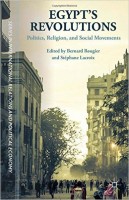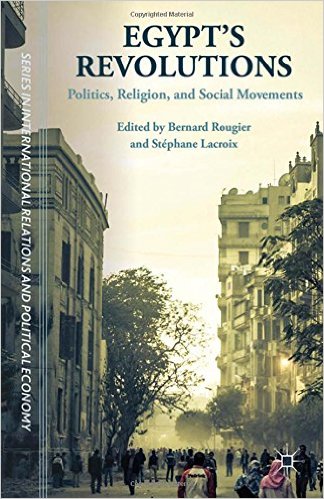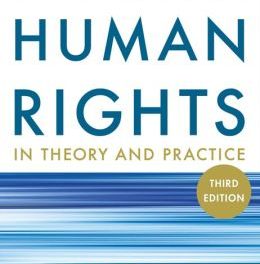 Editors: Bernard Rougier, and Stephane Lacroix
Editors: Bernard Rougier, and Stephane Lacroix
Publisher: Macmillan Palgrave – 281 pages
Book Review by: Paiso Jamakar
Egypt is the second largest nation in the Muslim world, with a population of about 90 million people, next only to Pakistan, which had more than 196 million inhabitants on January 01, 2014, according to the CIA World Factbook and Index Mundi (go to www.IndexMundi.com to see the population numbers of 20 Arab countries. This resource also provides thematic maps).
Egypt however is the largest Arab nation, followed by Turkey with over 81 million, Iran with over 80 million, Iraq with about 32 million people, Afghanistan with over 31 million, and others after that with smaller numbers, with the smallest ones being Bahrain, Qatar, Kuwait, and Oman, having between 1.3 million and 3.2 million people each.
These numbers have more likely than not, changed in the almost two years since January 2014, due to civil wars, mass murders, repressive and even reprehensible acts by dictators that have compelled oppressed people in the Middle Eastern region to move and seek refuge elsewhere, particularly in nearby European countries.
Egypt is not only important for demographic reasons but also in terms of the politics of the Middle East. It has played important, influential roles in the region. As a matter of fact the authors of this book, Bernard Rougier and Stephane Lacroix, consider Egypt to be in the heart of the Arab-Muslim world. This is only from a geographical viewpoint but also from a historical perspective, having influenced the thoughts, the actions and the movements of people in other countries in the region.
The time period this book spans is relatively short, from the end in February 2011 of the 30-year autocratic rule of Hosni Mubarak, the election win in June 2012 of Mohammed Morsi of the Muslim Brotherhood, then his overthrow by the Egyptian army in July 2013, the subsequent rise power (through a peaceful election again) of former Army chief Abdul Fattah al-Sisi in May 2014, and the happenings since then to now, December 2015.
The purpose of this book is to look at Egypt’s recent spare of revolutions, give details of the account of events, and discuss the causes of the successes and failures. This work is comprehensive, illuminating, insightful. These are the subjects that this book covers, as we show you below with its table of contents, to give you an overview of what is discussed in it:
- Part I – The Muslim Brotherhood Faces the Test of Power
- The Reason for the Muslim Brotherhood’s Failure in Power
- Confronting the Transition to Legality
- Between Social Populism and Pragmatic Conservatism
- Part II – Government, Institutions, and Political Processes
- The Role of Elections: The Recomposition of the Party System and the Hierarchization of Political Issues
- Egypt’s Judiciary in a Post-revolutionary Era
- Egypt’s Third Constitution in Three Years
- The Electoral Sociology of the Egyptian Vote in the 2011-2013 Sequence
- Part III – Social Actors and Protest Movements
- The Rise of Revolutionary Salafism in Post-Mubarak Egypt
- Sinai: From Revolution to Terrorism
- The Labor Movement in the Face of Transition
- Copts and the Egyptian Revolution : Christian Identity in the Public Square
- An Urban Revolution in Egypt?
- Part IV – Biographical Sketches
- Abdel Fatah al-Sisi
- Hamdin Sabbahi
- Mohammed Morsi
- Khairat-al-Shater
- Yasser Bohrami
To get a larger view and deeper understanding of the causes and outcomes of conflicts in which Egypt was involved, it is essential to look at Egypt from its post-British protectorate, independent period in 1922 up to the present.
Editors:
Bernard Rougier is a political scientist who specializes in Middle Eastern Studies. He is the author of Everyday Jihad; The Rise of Radical Islam Among Palestinians in Lebanon (2007) and The Sunni Tragedy in the Middle East: North Lebanon from al-Qaeda to ISIS (2015). He directed the Cairo-based Centre d’Etudes et de Documentation Economiques, Juridques, et Sociales (CEDE), Egypt, from 2011 to 2015
Stephane Lacroix is Associate Professor of Political Science at Sciences Po, France, and a researcher at Sciences Po’s Center for International Studies (CERI), France. He is the author of Awakening Islam: The Politics of Religious Dissent in Contemporary Saudi Arabia (2011) and Saudi Arabia in Transition: Thoughts on Social, Political, Economic, and Religious Change (with B. Haykel and T. Hegghammer, 2005)







